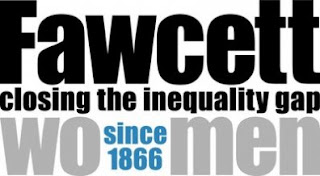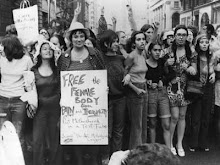
The Policing and Crime Act finally came into law this month effectively forcing existing lap dancing clubs to reapply for new licenses as ‘sex encounter venues’ - the same licenses that apply to sex shops, ‘peep shows’ and sex cinemas. Currently, they are licensed in exactly the same way as pubs.
For many, this has been a long time coming and is partly due to the incredible advocacy work of The Fawcett Society and OBJECT and their supporters who have been tirelessly putting pressure on local and National government for some time. This new law also means that communities will have much more control over whether new lap dancing venues are allowed to open in their local area, near schools and places of worship.
Now don’t get me wrong, I don’t mean to sound pious - I have been to lap dancing clubs myself in the past but let’s not pretend that a lap dancing or pole dancing venue is in any way the same as a bog standard pub or cafe. As a lap dancer recently told the Guardian in response to OBJECT’s proposals: ‘’If you're masturbating someone through his trousers with your arse, then that's definitely a sexual service.... No matter what the owners tell you, these places are 100% sex industry’’.
And to those who say its all just ‘a bit of fun’ I would point you to the statistics in Camden - a borough that currently has 7 lap dancing and strip clubs - that shows incidents of rape rose by 33% after the opening of the last 4 establishments. Having a no touching rule in the clubs is all well and good but when sexually aroused and frustrated men full of alcohol leave the premises, women become fair game. As someone who spent over a decade living on a road famous for prostitution, I was kerb crawled and propositioned constantly and was once mugged by a pimp so I can attest to that.
However, just as we celebrate the passing of the new law, strip club managers are up in arms. ‘It’s not fair!’ they claim, probably branding supporters of the campaign a bunch of prudes and lesbians. So incensed are they in fact that they are now claiming the law is in an infringement of their human rights and are threatening to take the matter to the EU courts. ‘’Why should we pay an extra £30,000 for a new license?’ they whinge? With one chain of lap dancing clubs turning over profits of over a million a year I would argue ‘because you can afford it!’.
Let’s not forget that it is not the dancers themselves who see the money, in fact many girls report ending up further in debt after having to pay for the privilege of dancing at such an establishment. Dancers also consistently state that the no touching rules are never adhered to and that they are generally expected to do whatever the punters want.
Claiming that new licensing laws are infringement of human rights is so ridiculous it’s laughable. I can only hope any claims get laughed straight out of court. As Anna van Heeswijk of OBEJECT stated ‘’human rights legislation exists to safeguard against discrimination, not to protect the rights of club owners to make a profit’’.

Do you have any thoughts about aqua sauna?.. Would you rather it was closed? indifferent?
ReplyDeletePersonally I've never had any trouble outside and only ever seen a couple of people going in. I think of it more as a boarded up shop.
Interesting post. Although, I think we need to be careful not to equate the sex industry with issues such as rape and, say, the sex trafficking industry, they are seperate phenomena. Men who visit lap dancing clubs are not rapists, and assuming that men who get sexually riled from a 'no touch policy' are also potential rapists is again dangerous territory.
ReplyDeleteI would be interested to know the statistics rates for other crimes in camden since the introduction of the lap dancing venues, which could itself be an indication of lowering SES, which would see an increase in all sorts of crime, not just rape.
The quote from the lap dancing managers was insightful. The truth is that they will not pay for the licence, but they will continue practicing, they make too much money not to. This license could therefore simply force such establishments underground, which means that the women who work there are even less protected from exploitation. Far better to follow the practices of New Zealand, Amsterdam even Germany who have a far more forward thinking attitude to the sex industry where it is properly controlled and managed in a more explicit way so that the women who work in it are better protected.
SO great that people have started posting comments so we can get some discussions going! Thanks ladies.
ReplyDeleteAnna - hmmm interesting point. I too have always looked at it as a boarded up shop since I have never seen anyone come out, go in or standing outside. I would be interested to see if they get rid of it when the Queensland Road regeneration starts. I will write to Jeremy Corbyn's office and find out what the bakground as - if anybosy has lodged any complaints, he will know about it.
Clare, in response to your post:
I think my point was that, weak licensing normalises the sex industry which in turn has an effect on everybody, men included. The very existence of such clubs encourages the objectification of women. I was certainly not saying that all men who frequent the clubs are rapists and hope thats not how it reads, but it is a sad fact that areas rife with prostitution, lap dancing clubs and sex shops have higher incidents of reported sexual harassment, sexual assault and yes, other crimes such as muggings and burglaries.
As for what you describe as the danger of confusing lap dancing with rape, prostitution and sex trafficking, these are, I woudl argue, without a doubt inextricably interlinked.
Fawcett Society and OBJECT research shows what most of us can already work out for ourselves – that a proliferation of lap dancing clubs fuels an increased demand for the purchase of sex (which in turn ‘’encourages factors driving hum trafficking flows’’).
Various studies interviewing punters show that around 50% interviewed cite ‘looking for sex’ as their reason for going. Around 20% in one study claim that they do in fact get sexual services from the venues – or at least from the women they meet there.
Clubs in Scotland were involved in a police investigation in the late 90s finding 3 young women who had been trafficked from Eastern Europe to work in the clubs. And anecdotal evidence from sex worker and lap dancers themselves suggests there are way more.
I am not sure I agree with your suggestions that the new licensing drives the venues underground thus making it even more unsafe for dancers. The many dancers interviewed for the studies and those who joined the campaigns expressed the fact they have no rights at all and are unhappy with their working conditions. They agreed that licensing these venues appropriately would improve conditions for dancers (as well as for residents living in the areas where the clubs operate).
I think we can argue fairly extensively but my main issues were that:
1. I don’t think anyone can argue with the fact the clubs encourage the sexual objectification of women.
2. Managers claiming the new laws are an infringement of their human rights is insulting, not least to the women who work for them whose rights they clearly value so little.
Some suggested reading if anyone is interested in finding out more on the topic:
Lillith Project (2003) Report on Lapdancing and Striptease in the Borough of Camden
Holsopple K (1998) Stripclubs According to Strippers: Exposing Sexual Violence
Dickson (2003) Sex in the City: Mapping Commercial Sex Across London, The Poppy Project
Charli
P.S. DEFINITELY want your comments on my discussion paper going up this week which is on this subject :)
I meant to post this link yesterday - Julie Bindel's fascinating study into lapdancing clubs for the Child and Women Abuse Studies Unit and London Met:
ReplyDeletehttp://www.rapecrisisscotland.org.uk/documents/profitable%20exploits.pdf